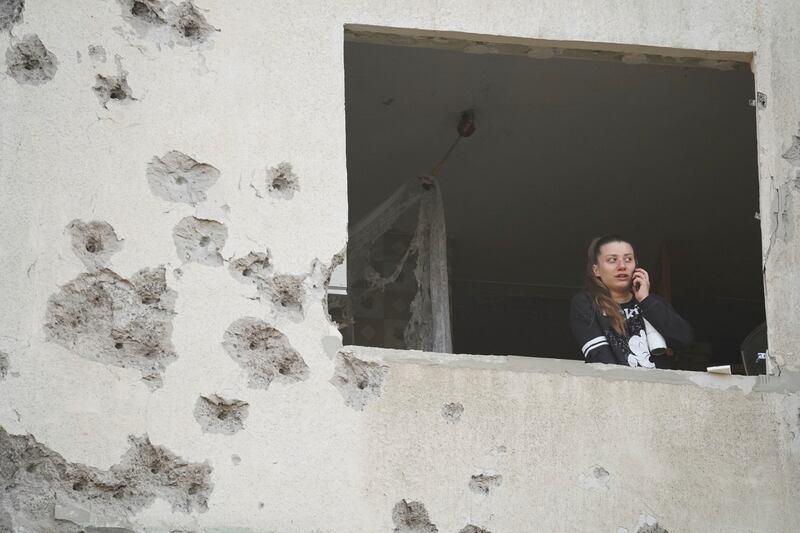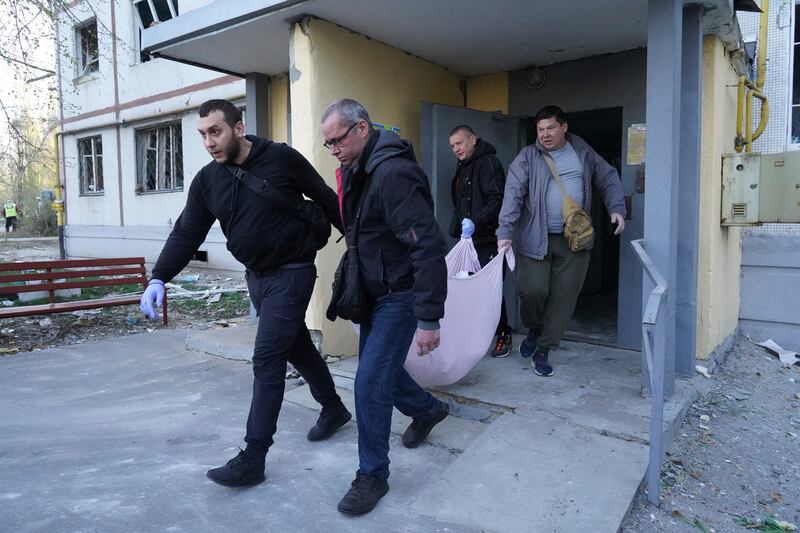- Secretary of State Marco Rubio announced the U.S. will "move on" from mediating Russia-Ukraine peace talks within days if no short-term solutions are reached.
- Russian President Putin has rejected all U.S. ceasefire proposals thus far, demanding Ukraine abandon NATO aspirations, cede four southeastern regions and downsize its military.
- President Trump confirmed Rubio's position, stating the U.S. is prepared to withdraw from peace negotiations if either party makes reaching an agreement too difficult.
In a press release Friday morning, Secretary of State Marco Rubio said the United States will “move on” in a matter of days from acting as a peace-negotiations mediator between Ukraine and Russia if the warring countries are unwilling to come to any short-term solutions.
“This war has no military solution to it. It really doesn’t,” Rubio told reporters in France on Friday. “It’s not going to be decided with — neither side has some strategic capability to end this war quickly. And so what we’re talking about here is avoiding thousands and thousands of people from dying over the next year.“
Rubio then mentioned a Russian missile strike on the northern Ukrainian city, Sumy, on Palm Sunday, killing 34 people and injuring 117. “We’re just going to see more like that. On both sides we’re going to see more of that, and we’re trying to prevent it,” he said.
Determining the exact number of deaths in the war has proven to be difficult, due to a lack of reporting. However, at the end of March this year, the General Staff of Ukraine’s Armed Forces reported that Russia had lost 915,000 soldiers since the start of the war.
Ukraine seems to have suffered far fewer losses, as Ukrainian war correspondent, Yuri Butusov, estimated that by the end of 2024, the country had lost 70,000 soldiers.
Rubio discusses U.S. involvement since Trump’s inauguration
Steve Witkoff, U.S. special envoy, has met directly with Russian President Vladimir Putin three times “to determine the Russian perspective” on short-term solutions.
However, Putin has rejected all U.S. ceasefire proposals so far and has made several demands before proceeding any further. These include Ukraine abandoning its aspiration to join NATO; ceding from four southeastern Ukrainian regions, including Zaporizhzhia, Kherson, Donetsk and Luhansk; and downsizing its military.

In March, Russia and Ukraine agreed to a 30-day halt on strikes against energy infrastructure, as the Deseret News previously reported. However, both sides accused the other of violating the deal.
Rubio also explained that he, retired Lt. Gen. Keith Kellogg and others have had “repeated engagements with the Ukrainians” to find what they would need to come to a short-term ceasefire with Russia as well.
Can a ceasefire be achieved?
With leaders from the U.K., Germany and Ukraine in France on Friday, Rubio discussed what it could take to end the war, and said that the Trump administration wants it done quickly.
“I’m talking about a matter of days, not a matter of weeks — whether or not this is a war that can be ended. If it can, we’re prepared to do whatever we can to facilitate that and make sure that it happens, that it ends in a durable and just way,” he said.
Rubio then considered the possibility that a ceasefire cannot be reached. “If it’s not possible — if we’re so far apart that this is not going to happen — then I think the president’s probably at a point where he’s going to say, ‘Well, we’re done. We’ll do what we can on the margins. We’ll be ready to help whenever you’re ready to have peace.‘"
“But we’re not going to continue with this endeavor for weeks and months on end,” Rubio said.
He continued, “We’re prepared to be engaged in this as long as it takes, but not indefinitely, not without progress. If this is not possible, we’re going to need to move on.”
Trump expressed the same sentiment in the Oval Office
President Donald Trump confirmed that Rubio’s comments were his own position in the Oval Office on Friday, per Reuters. Commenting on conversations between Russia and Ukraine, Trump said, “Now if, for some reason, one of the two parties makes it very difficult, we’re just going to say, ‘You’re foolish, you’re fools, you’re horrible people,’ and we’re going to just take a pass.”
Dmitry Peskov, the Kremlin’s spokesman, told the BBC, “The negotiations taking place are quite difficult. The Russian side is striving to reach a peace settlement in this conflict, to ensure its own interests, and is open to dialogue.”
Ukrainian President Volodymyr Zelenskyy has not responded publicly to Rubio’s statements.
Meanwhile, in Rome for Good Friday, Vice President JD Vance told Italian Prime Minister Giorgia Meloni he was “optimistic” about the war coming to an end. “I won’t prejudge them, but we do feel optimistic that we can hopefully bring this war, this very brutal war, to a close,” he said, per The New York Times.


